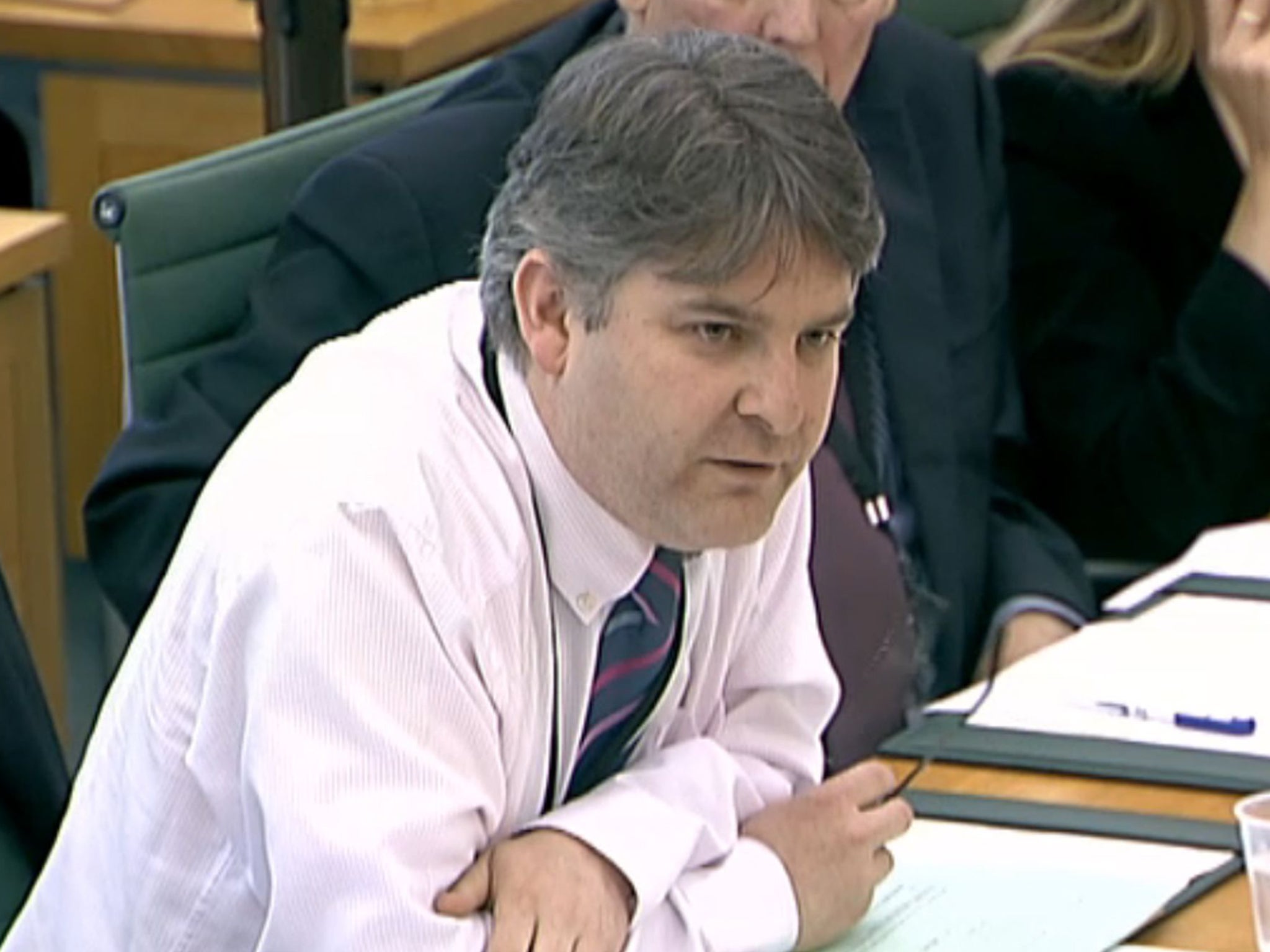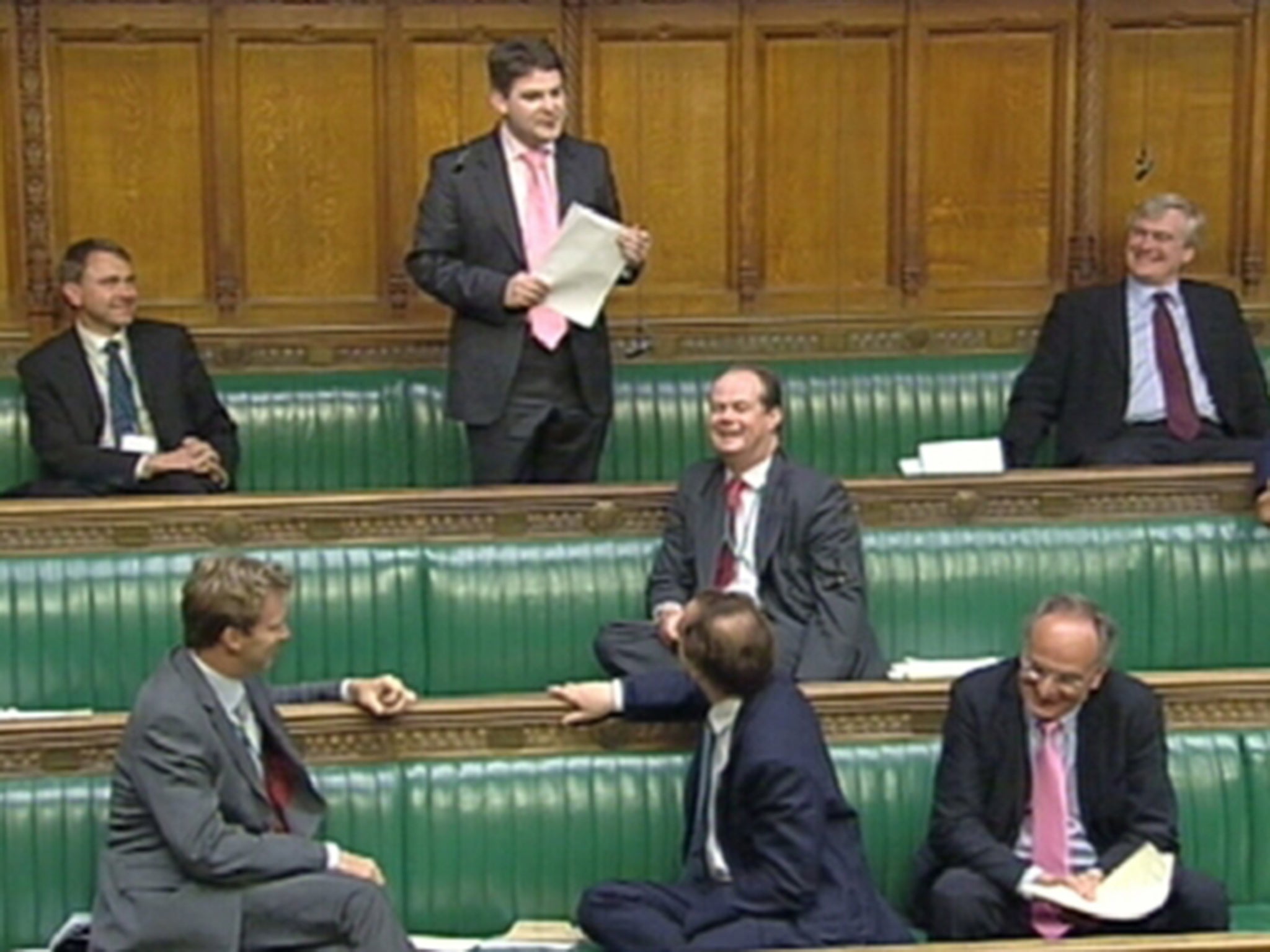Philip Davies, the master of filibuster and friend to rogue landlords
Tory MP for Shipley has managed to thwart a number of bills to prevent abuses – by talking them out

When the new Conservative member for Shipley stood up on 7 June 2005 to make his maiden speech in the Commons he promised his fellow Parliamentarians two things.
“I assure Honourable Members that I am a straight-talking Yorkshireman who will not be afraid to be controversial,” Philip Davies pledged.
But, he added, he would not be verbosely controversial. “I intend to start off as I mean to go on – by being brief.”
Nine years on and it would be fair to say that Davies has succeeded admirably in his first ambition but failed lamentably in his second.
He has become the Westminster master of using long, meandering speeches to kill off legislation he doesn’t like – simply by talking.
Over the last few months Davies has filibustered legislation to stop rogue landlords evicting tenants asking for basic repairs. He also tried to thwart legislation to enshrine the Government aid budget in law – despite the legislation having the support of all three main parties.
And earlier this month – using a different tactic – he managed to prevent a Bill banning the use of wild animals in circuses from even being debated in the Commons.
Before that he has helped prevent attempts by backbenchers to get mandatory smoke detectors fitted in rented properties, regulate payday lenders and force councils to provide support to those who care for the disabled.
So who is Davies, how does he do it, and does he really deserve the reputation of being Britain’s most-belligerent MP?
Ever since he was elected Davies has made clear that he would not compromise his right-wing world view to achieve ministerial preferment. The former Asda marketing manager is the third-most rebellious MP in the Commons, having voted against his party on 120 occasions in this Parliament.
Among other things he has objected to gay marriage, regulating lobbyists, letting MPs tweet in the House of Commons and banning smoking in cars with children. Last week he came out strongly in favour of the ban on sending books to prisoners.

He has personally proposed legislation that would jail anyone entering Britain without a visa for six months regardless of the circumstances and also wants to scrap the BBC licence fee.
He is big supporter of the UK gambling industry – and attempted to derail proposals to limit advertising before the watershed. And he really, really hates the European Union.
But it his use of Parliamentary procedure to stymie bills of which he does not approve that has irked some of his colleagues. Under House of Commons rules, backbench MPs can introduce their own bills which are debated on Fridays when most MPs are in their constituencies.
But the rub is that time is limited – and bills can be de-railed and even not voted on if enough MPs carry on talking until the time that has been allocated for debate has been used up. The only way to avoid this is for 100 MPs to vote for a closure motion – something which is hard when most are not in Westminster.
Along with his friend and fellow rebel Christopher Chope, Davies has made “talking out” his speciality.
Take his hour-long speech objecting to Tenancies (Reform) Bill that would have prevented landlord from evicting their tenants – simply for requesting vital repairs be done to their property.
Having told stories of friends in Australia and read out sections of the Conservative 1987 manifesto, his 8,000 word oration was rebuked by the deputy speaker.
“He (Davies) has been talking for a very long time on the same point,” she said. “He is in danger of repeating the same point continuously … and – dare I say it? – repetition can get a bit tedious.”
When Davies failed to take the hint the Deputy Speaker finally used her prerogative to silence him. “Order!” she shouted. “Sit down, Mr Davies. Your speech is finished.”
However it was not enough to prevent the Bill from being “talked out” and it now has no chance of becoming law.
Davies was less successful in talking out a Bill to enshrine the UK commitment to spend 0.7 per cent of GDP on international aid earlier this month.
But not without trying. In a 10,000 word speech he managed to talk for around an hour about every facet of international aid and the harmful consequences of the proposed legislation.
He only failed because supporters of the Bill were able to muster 100 MPs to table a closure motion and force the legislation to a vote.
Asked by The Independent whether his tactics are a little underhand, Davies is unrepentant.
“When I first got elected to Parliament my mentor was Eric Forth [the former Tory MP] and he really was the past master of talking out bills on a Friday,” he said. He did it for fun and he was brilliant at it. After he died I vowed I would do the same kind of work.
“He taught me that lots of these have all got a worthy sentiment behind them but you can’t pass legislation on the whim of a worthy sentiment because it affects people’s lives and livelihoods. I agree with him. It is a very unsatisfactory way to pass legislation.”
But there is one small problem. One rare backbench Bill that Davies did support was David Cameron’s proposal to enshrine plans for an EU referendum in law which was not supported by the Liberal Democrats.
“It’s not ideal,” he admits. “But it’s something I feel very strongly about.”
Join our commenting forum
Join thought-provoking conversations, follow other Independent readers and see their replies
Comments
Bookmark popover
Removed from bookmarks